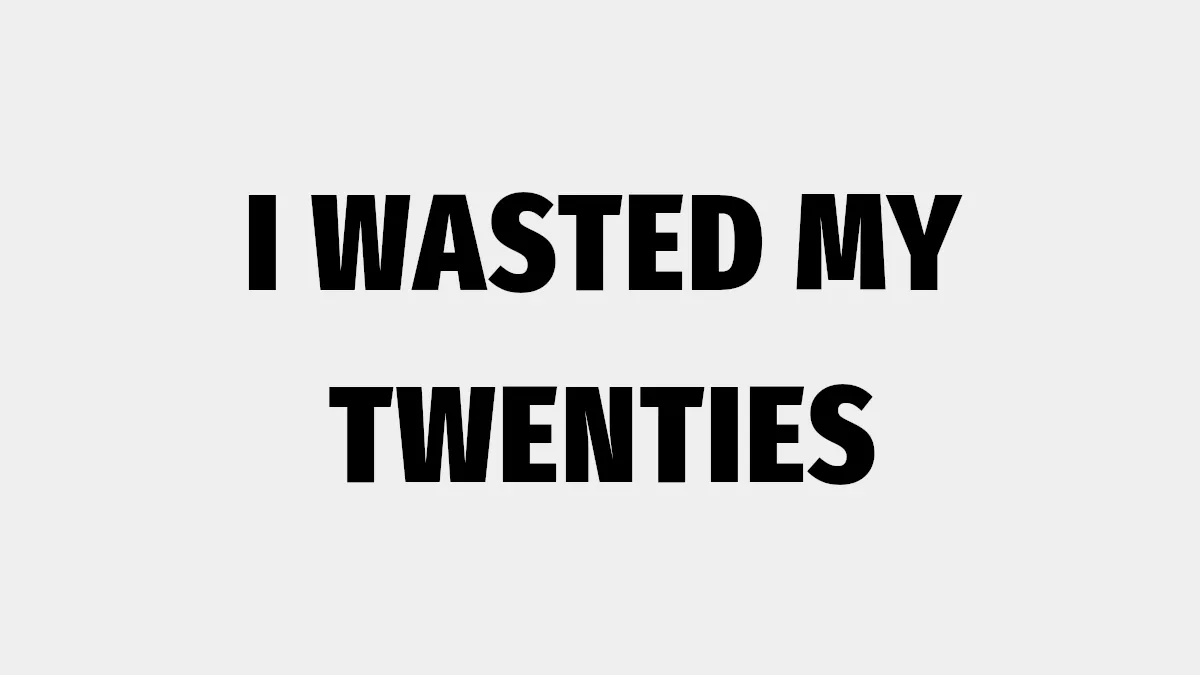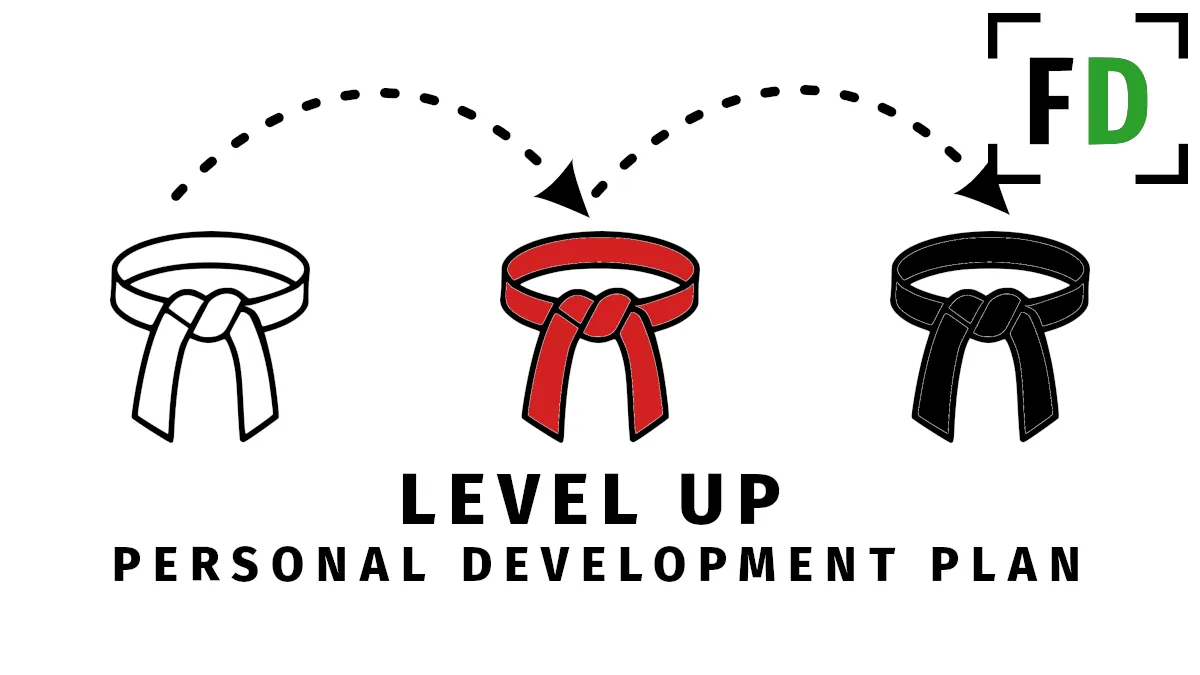I love monk mode, and I’ve written about it before. It’s all about removing distractions and focusing on a small number of goals, making massive progress in the shortest amount of time. But the one concern I hear back from readers is, “I just can’t drop everything in my life for three months!” Understandable. So, I came up with Midnight Monk Mode. Live your regular life and make huge progress on your goals while everyone else is watching Netflix or sleeping.
What Is Midnight Monk Mode?
The way to improve your life, according to every lifestyle guru or motivational speaker – whether it’s David Goggins, Eric Thomas, or Tony Robbins – is, “Wake up early.” It’s almost a cliche.
They say you can wake up at 5.00 am and get two hours of work done before anyone else is even up. And maybe it’s even possible in Tony Robbin’s mansion with a full gym, study, and kitchen far enough from the bedrooms not to disturb anyone. But try telling my wife I will set the alarm for 5.00 am from now on!
Even if she let me (or I used a ‘silent alarm’), I would end up creeping downstairs, scared to do anything for fear of waking them up. And – let’s be honest here – I don’t like waking up early!
So, instead of doing all the stuff first thing in the morning, why not do it late at night?
I’m sure your day looks something like mine:
- Finish a day’s work
- Take my kid to his martial arts class
- Go to the gym
- Get home at about 8.30 pm.
- Eat dinner and spend the rest of the night “chilling out” watching TV, YouTube, or something else I don’t really care about till after midnight.
Sound familiar? I’m sure it does, even if the details are different.
Midnight Monk Mode is the answer.
It means you go into monk mode from 9-12 midnight.
- Remove distractions
- Tell everyone not to disturb you
- Work with focus on one goal for three hours (multitasking is not your friend)
If you can do this every day for a week, you’ll be convinced just how powerful Midnight Monk Mode is.
You may think this is just swapping the morning time that the gurus advise for the evening. And you’re kinda right. But that morning time doesn’t always exist. Sometimes you wake up, and it’s already 8.15 am, or you wake up at 5.00 but think, “Not today. I’ll do it tomorrow.” and go back to sleep.
But 9.00 pm is there every day.
How I Use this Productivity Technique to Steamroll My Goals
I’ve been working on Face Dragons for over two years now, and although I’ve started to see some success, I need to up my game if I’m going to get where I want to be. That means more work.
So, I’m using Midnight Monk Mode to write and work on Face Dragons.
But it’s not only for working on your business or side hustle. I have also used it to quickly improve my Tibetan language by scheduling classes every evening.
Despite learning for a few years, I struggled to get to the point people would call fluent. I mostly used books, audio courses, YouTube videos, and the occasional online class. My teacher didn’t speak much English, so classes were painful.
In all, I was spending about 6 hours per week learning Tibetan. Then, I started taking classes every evening (on weekdays.) I went from 6 hours a week to about 15 hours per week, and 10 of those were speaking to a native speaker. My Tibetan improved rapidly.
Soon, I needed more, so I took a month-long monk-mode trip and studied full-time at a Tibetan language school in India.
I taught myself to code the same way. While at university in China, I had long days of class. After coming home and finishing my assignments, I would spend the whole evening coding (mostly Java, this was 2008). I did that for about two years.

It was no coincidence that my first job was in the IT department of an international biotech company.
In bodybuilding, they call it “volume,” in language acquisition, they call it “time in the language,” and in writing, they call it “pages, “they all mean the same thing – Success comes down to the amount of time you put in.
Three hours each evening makes 15 hours per week (or 21, including weekends) – that’s 780 hours a year.
How much better would you be at the piano, juggling, or whatever with 780 hours more experience? How much better would your business look next year?
How to Get Started
There are only three steps you need to take to accomplish your goals, be more productive and change your life for the better.
- Schedule midnight mode monk
- Prioritize your tasks ahead of time
- Manage interruptions and stay focused
1. Schedule Your Midnight Monk Mode Time

Of course, you can go with the classic 9-midnight. But maybe that doesn’t work for you. Maybe you need to be asleep by 11.00 pm, so you chose 8-11, or maybe three hours is too much for you, so you chose to do 9-11.
It doesn’t matter what times you choose, but you must choose a time. And stick to it – set it in stone!
The first time you break your midnight monk mode by missing it, starting late, or quitting early, you’ll break the spell and find yourself doing it again and again. Until you realize that you’re not doing midnight monk mode anymore; you’re just doing the occasional task on weekday evenings between shows on the couch.
So schedule your time. Put it on your calendar, add a reminder to your phone, or stick a notice on the wall if necessary. Just make sure that this time is set aside for you to make you better.
2. Decide What You Will Work On

The last thing you want is to show up on time for your evening sessions only to have nothing to do. Instead of getting to work, you spend 45 minutes looking through things and trying to find something to work on.
No, you must decide what you’re working on ahead of time. Here’s how:
Once a week, write a timetable or a to-do list labeled Monday- Friday, then figure out what you will work on for three hours each day. You’re ready to have a productive week when you’ve decided the whole week.
If you find that time and time again you forget to do this on Sunday or just don’t have time, here’s a good solution. Give up your first hour of midnight monk mode on Monday and do it then. So, every Monday, you spend an hour working out what you will do that week. Then, instead of having 15 hours to work, you’ll have 14, but you’ll be focused every day. It’s a worthwhile tradeoff.
3. Remove Any Distractions

Scheduling your time and figuring out what you will do mean nothing if you are distracted all evening. Recent statistics show that it takes most of us over 25 minutes to return to a task after being distracted. To reduce distractions, you’ll need to:
- Find a place you can work in peace
- Leave phones or any other distracting gadgets outside
- Tell your family what you’re doing (and why)
You might think you can simply work at the kitchen table, but it’s uncomfortable up there, and, more importantly, evening walking in and out of the kitchen all night. Every time you get distracted, it will undermine your willpower. No, you need somewhere that’s set up for work, somewhere you can close the door (or lock it!)
Monks live in cells. Usually, a cell contains a bed, maybe a desk, but not much else. There’s a good reason: when you want to devote yourself to something, the last thing you want is a room full of distracting junk!
So leave the phone somewhere else, put the snacks back in the fridge, and clear the area before you get to work.
The final distraction is the people you live with. It’s unfair to expect them not to disturb you if they don’t know what you’re doing. They may even resent you for spending time working when you could be with them. So you must also explain why you’re doing midnight monk mode. It may be to earn more; it may be to learn more. Whatever the case, if they want what’s best for you, they’ll understand.
Tips for Success with Midnight Monk Mode
I have a list of tips for monk mode you should read. Here are a couple that are more specifically aimed at Midnight Monk Mode.
I’m Tired in the Evenings
I usually hit the gym in the evenings, around 7.00 pm. But on days I’m not going to the gym, I get home at 7.00 pm, and I’m done! But on the days I go to the gym, I get home, grab a snack, change, and walk out the door. What’s different? My expectation.
On the days I know I’m going to the gym, my body somehow saves some extra energy for me. However it works, it works. So, expect to come home and put in three more hours; the first week may be hard, but you’ll get used to it.
What About Sleep?
Sleep is important. Can you go to bed at twelve and still get enough sleep? Probably. If not, go to bed at 11.30.
The other way to think about this is: is missing sleep worth the advantages I will gain from Midnight Monk Mode? It should be if you set it up right, especially for a short while.






